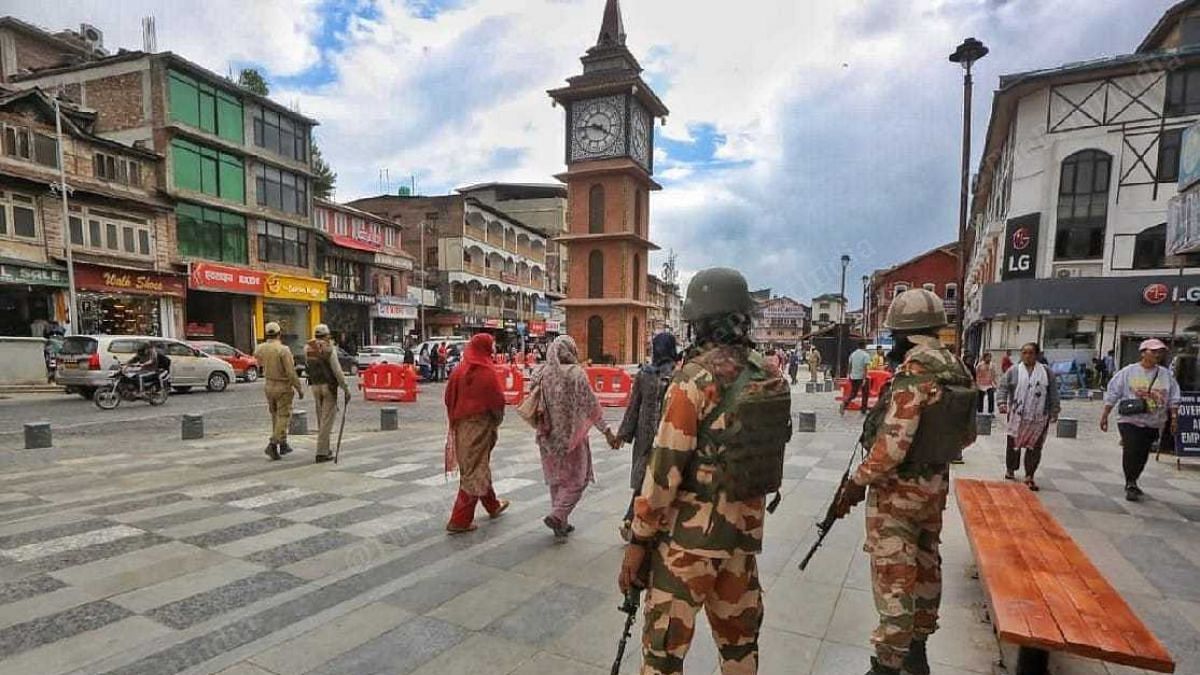“They all just want votes. No work has been done by any politician here, and we have no hopes from anyone. We know Article 370 will not come back. These politicians are making a fool of people, playing with our emotions,” he says.
“There is a major electricity issue, the roads are in deplorable condition, our young educated children are sitting at home with no jobs, but no one will talk about these real issues? Whoever comes to power will work for their own benefit. After garnering votes, they will all disappear,” he seethes.
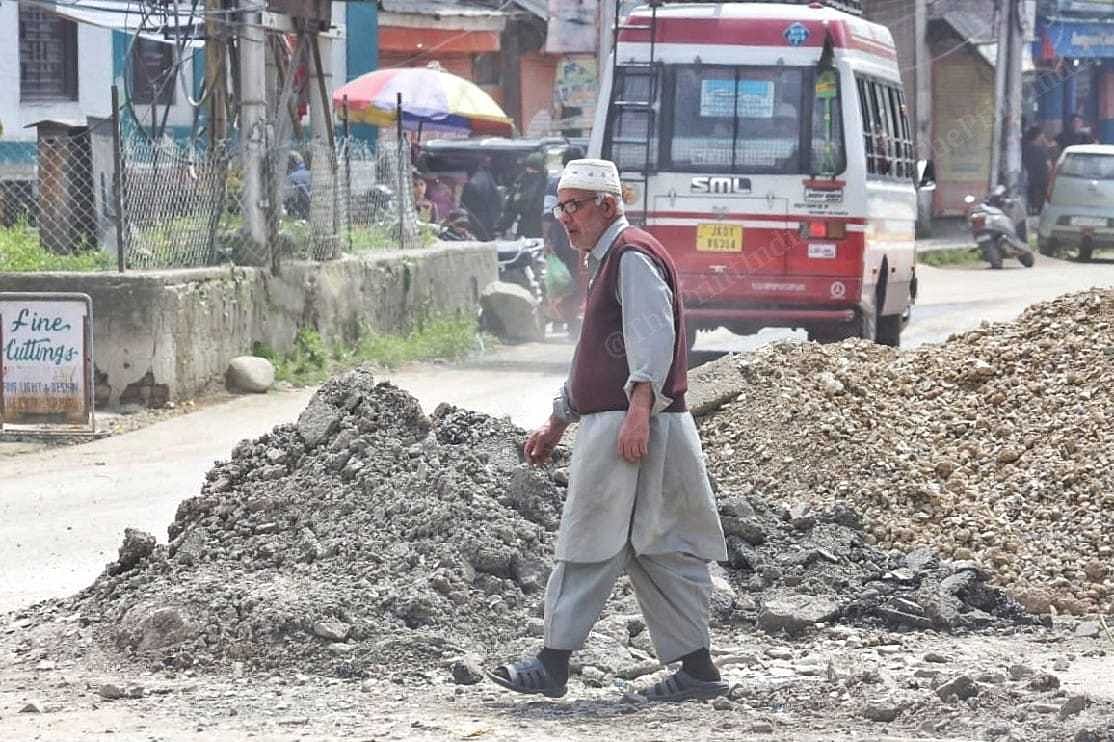
In contrast, for Kashif, a shopkeeper in the Jama Masjid complex, the paramount importance lies in reaffirming Kashmiri identity, addressing the political vacuum, and reclaiming full statehood, including the restoration of “Kashmir’s crown” — its special status.
“This is the first election after our special status was taken away, so it will definitely be a big factor. We were disempowered, the people were put behind bars, and the NIA (National Investigation Agency) knocked at the door of anyone who dared to raise voice. We will support the leader who talks about restoration of our lost identity, full statehood as we have been without a government for years now. We are being governed from Delhi under President’s rule, and those people know nothing about what Kashmiris want. They are outsiders,” he says.
As Srinagar votes 13 May, for the first time since the abrogation of Article 370 in 2019, the resurgence of discussions surrounding identity and political representation is likely to drive voting behaviour. Besides this, pressing concerns, such as electricity shortages, water scarcity and unemployment, also figure prominently in the discussions shaping the dominant narrative in the lead-up to the polls.
With over 17 lakh voters, this parliamentary constituency — encompassing Srinagar, Ganderbal, Pulwama, Budgam and Shopian — is set to witness a triangular contest between the National Conference (NC), the Apni Party, and the People’s Democratic Party (PDP). The Bharatiya Janata Party (BJP) has not fielded any candidate for the seat.
While the NC has fielded Aga Ruhullah Mehdi, a former cabinet minister and Shia cleric, Apni Party’s candidate is Mohammad Ashraf Mir. The PDP has nominated Waheed ur Rehman Parra, the former secretary of the state sports council and president of its youth wing.
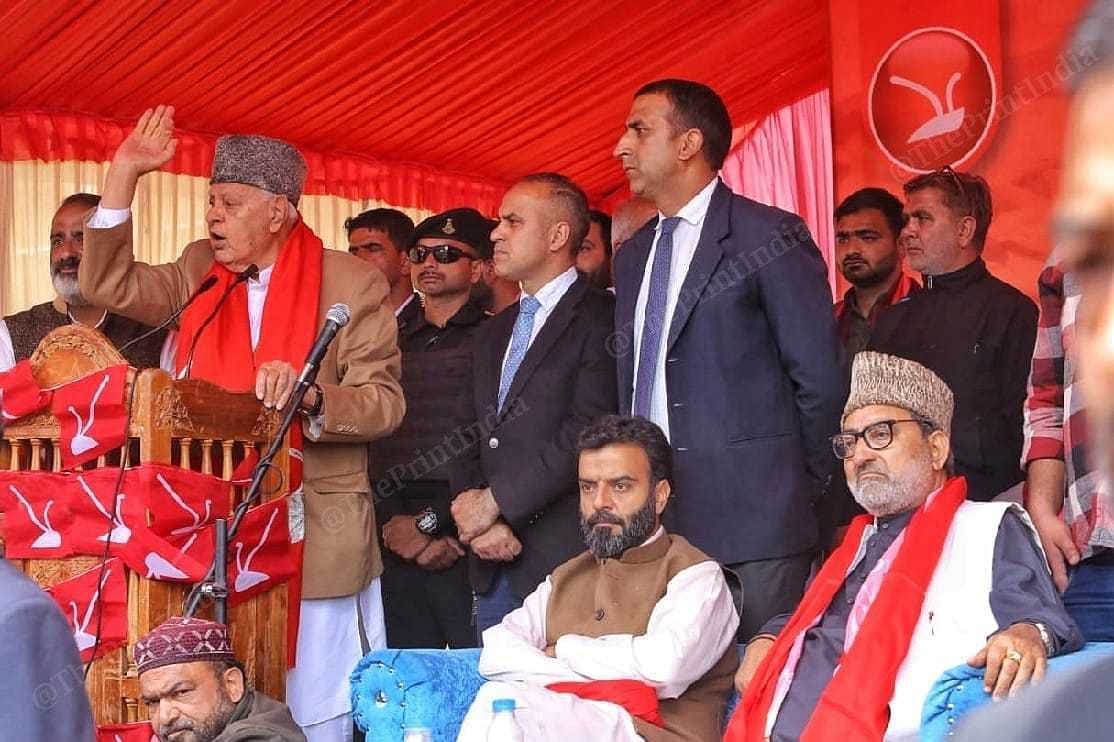
Such is the importance of this election that Research and Analysis Wing chief Ravi Sinha, Intelligence Bureau chief Tapan Deka and Home Secretary Ajay Bhalla had a physical meeting with the Lieutenant Governor Sunday.
“The meeting was held to ensure that the election is carried out in a free and fair manner, and more and more people come out to vote. Key officials took stock of the situation, and had a detailed meeting,” a source in the government said.
Also Read: Congress not behind inclusion of YSR name in Jagan DA case, says Rahul in ex-CM’s home turf Kadapa
‘No boycott calls, reclaiming identity, development — key issues’
In a paradigm shift in mainstream politics in Srinagar, there are no hartals, bandh calls or a boycott of the elections this time, which has previously been a norm in the region.
With all three parties campaigning intensely, the voter turnout in Srinagar and other areas in the constituency is expected to be higher than usual. In the 2019 Lok Sabha elections, NC president Farooq Abdullah won from Srinagar, which witnessed a dismal polling figure of just 13 percent.
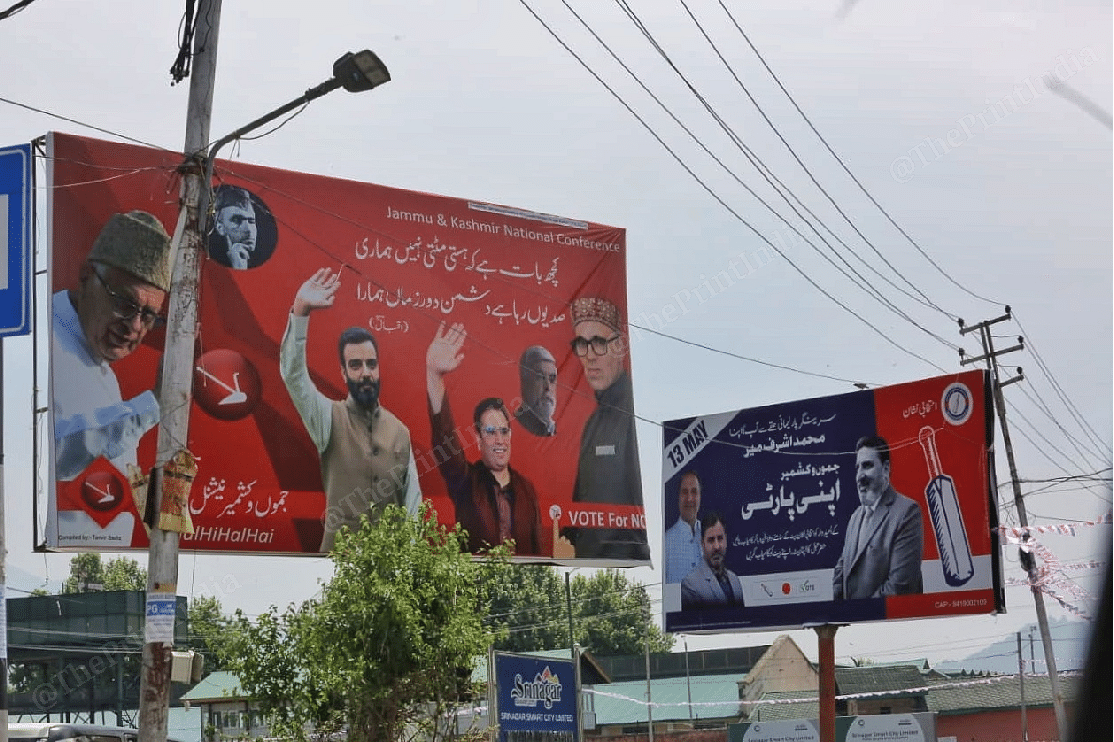
The NC’s main election pitch is the battle for “Kashmiri identity and rights”, declaring that the people have not yet surrendered to Jammu and Kashmir (J&K) being reduced to a Union Territory. The PDP, on the other hand, is talking about “healing people through an electoral process”, besides promising better road connectivity, electricity and education.
NC’s youth president Salman Ali Sagar tells ThePrint that the party is not asking for votes for development or Bijli, pani, but for the larger cause of “democracy and rights of the people that have been lost”.
“Right now, the main issue is this identity crisis in Kashmir. Democratic values in Kashmir have been finished. Our special status, our identity was taken away, and to restore that is our priority.”
Accusing the current dispensation of “influencing the election” and backing the Apni Party, Sagar adds, “Police force and administrative machinery is being used against us to ensure that we don’t win, but people will not back out. If we win, we will strive hard for revival of special status, which is our core agenda. We want democracy to return to Kashmir. We want our own people to govern, and be in a position of power.”
NC spokesperson Abid Wani also says that the demand for restoration of democracy in Kashmir resonates deeply within the valley.
“There is a void in democratic space that needs to be filled, and the people of Kashmir are with us for that. There are the issues of unemployment, roads and electricity, but there can’t be a trade-off between aspirations and development. Right now, saving our rights, and reclaiming what we have lost, is what is more important,” he explains.
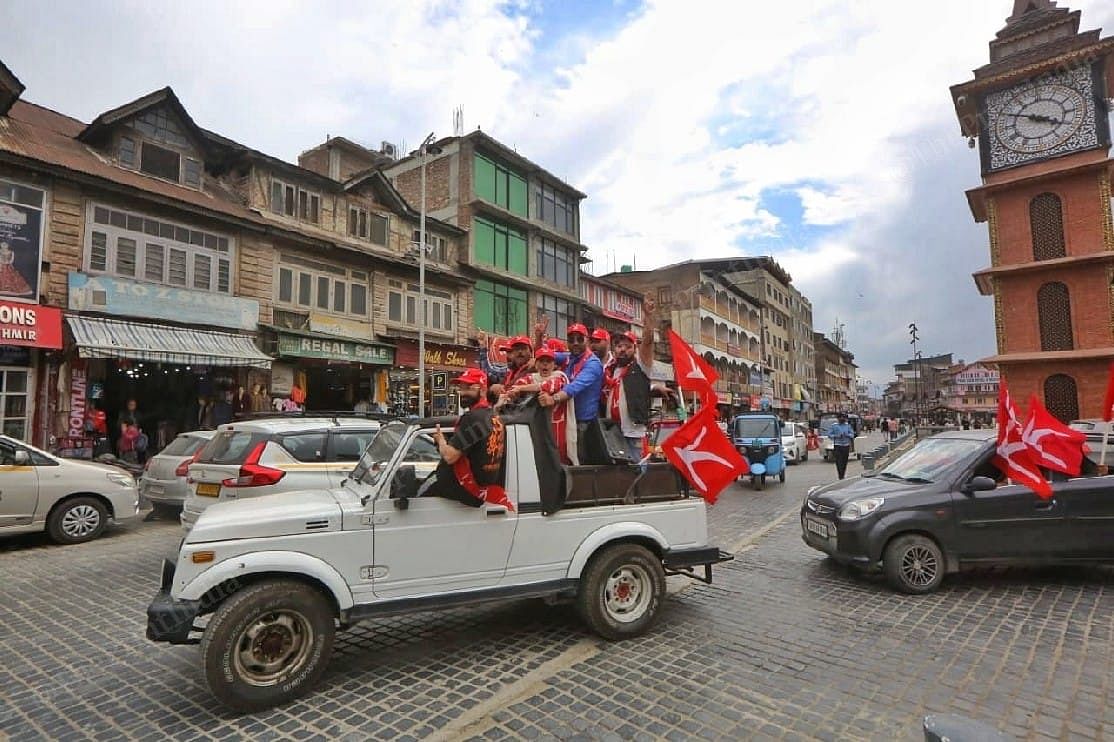
PDP’s candidate Waheed Parra, however, tells ThePrint that the main agenda for the party is to break the silence in J&K, end the cycle of suffocation that has been created due to a political vacuum, and heal people through an electoral process.
“This election is less about garnering votes and more about ending the suffocation. People are disillusioned, but there is a realisation that it is important to vote to bring in a leader, who would represent them and make their voice heard. J&K has not had that since 2018,” he says.
“Usually people do not vote in Kashmir. But this time, people will come out to vote in good numbers because they realise how important it is to reclaim what they have lost.”
‘Sach ki siyasat’
For the Apni Party, purportedly being supported by the BJP, the key agenda for the polls comprises “restoration of statehood”, “generation of employment for the youth” and overall development of the region. The party has also been talking about “working with the Centre for the betterment of the region”.
Candidate Ashraf Mir tells ThePrint that if the Apni party comes to power, it will be “sach ki siyasat”, unlike the mainstream political parties, who have been “taking people for a ride for decades”. The Apni Party was launched after Article 370 was scrapped in 2019.
“Parties like NC and PDP have been here for more than 40 years, but they have not delivered anything to the people. People can now see through the lies of these dynasts,” he says.
“These people always stuck with the separatists, cheated the Kashimirs by playing the politics of emotions, and never focussed on any development. Now that time is over, when these parties can use the public for their benefit,”
Mir says that post the Article 370 abrogation, law and order in Kashmir has improved significantly, a claim echoed by most Kashmiris in the region.
“Ours will be sach ki siyasat, where people will not be fooled. Our agenda is development, complete statehood for J&K, and engagement of the alienated youths. Many of them are victims of drug abuse due to increasing unemployment, which needs to be addressed.”
The Apni Party candidate adds that development is only possible, if the UT works in tandem with the central government. “J&K has to have a good relationship with the Centre. It is not possible to perform well without the Centre’s assistance and friendship. They can give a lot to us; it is just about maintaining that relationship,” he elucidates.
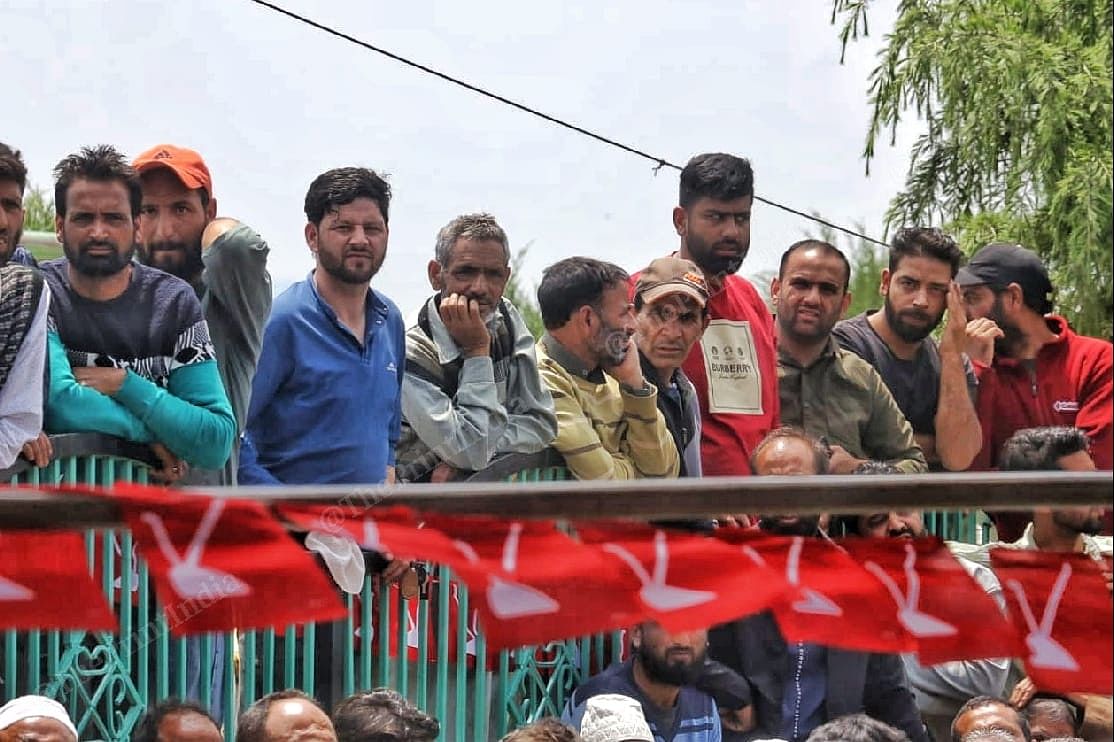
‘Disillusionment’
For Dr Afreen Javed, there is little hope for Kashmir, even if elections are held freely and any party comes to power. She stresses that J&K needs a leader, who works for local issues and primary concerns of the people.
“Leaders talk about many things, but no one does anything. They disappear as soon as the elections are over. I have seen both NC and PDP. Neither is good or fair. They are selfish.”
She believes that today’s young voters are increasingly discerning, evaluating parties based on their actions rather than blind loyalty.
Referring to the situation after the abrogation of Article 370, Javed highlights that there have been both negatives and positives. According to her, a positive change is that the hartals and bandhs have stopped, and that there is some development. “However, basic needs are still ignored,” she adds.
Javed says that since 2018, J&K has been without a CM or MLAs, which has left a significant void in terms of addressing citizens’ grievances. She believes that reinstating statehood and conducting assembly elections are imperative.
“Statehood and assembly elections are the need of the hour. But again, if you ask me which party is good for Kashmir, I won’t have an answer. We, as voters, are so disillusioned,” she says.
In downtown Srinagar, infamously known for its volatility and frequent incidents of stone-pelting, residents have opted to boycott the elections, despite the absence of any official call for a bandh or boycott.
Saba Mehak, a resident of the area, voices the prevailing sentiment of disenchantment.
“We keep looking at the bulb, but we don’t get any electricity. What do we do with these flashy smart city lights, when there is no electricity in our homes? We are sitting at home despite being graduates, and there are no jobs. No party is good. We will not vote. All of them are corrupt,” she says, walking away in anger.
(Edited by Mannat Chugh)
Also Read: Rallying cry for INDIA & against ‘dictators’ — Kejriwal & Mann beat poll war drum at Delhi roadshow

